

This workshop offers a selection of 5 different forms of information shared online to discuss possible issues.
We designed these materials to trigger discussion and provide guidance on what to consider before publicly posting or sharing information.
Select one of the below images to get started.

A joke article was written in 2012, giving a false history with made-up evidence, claiming the truth behind Goofy’s identity as a cow. Since then, this misinformation has been used as clickbait by a number of different websites.
What is 'clickbait'?
Clickbait is content whose main purpose is to attract attention and encourage visitors to click on a link to a particular web page.
So, clickbait is designed to tempt you to click on a link. Why?
Advertising provides income to website owners. Every time someone views an ad, the host is paid. Some people and companies have decided to make the most of this by filling their sites with lots of adverts to maximise profits. When one page is not enough, they often spread a story across several. To get people to actually read through the whole thing (and therefore 'view' all the advertising) they need to come up with headlines and link images that will capture people's attention.
Unfortunately, as with all things online, there are other risks associated with clicking on or sharing an unknown link.
How can a link be dangerous?
Links can activate downloads (including malware and viruses), take you to unexpected or inappropriate sites, or allow data collection which could be sold on.
What are your suggestions for sharing these?
If one of these tickles your funny bone, or catches your attention by raising a question you would like to know the answer to, our advice is this:
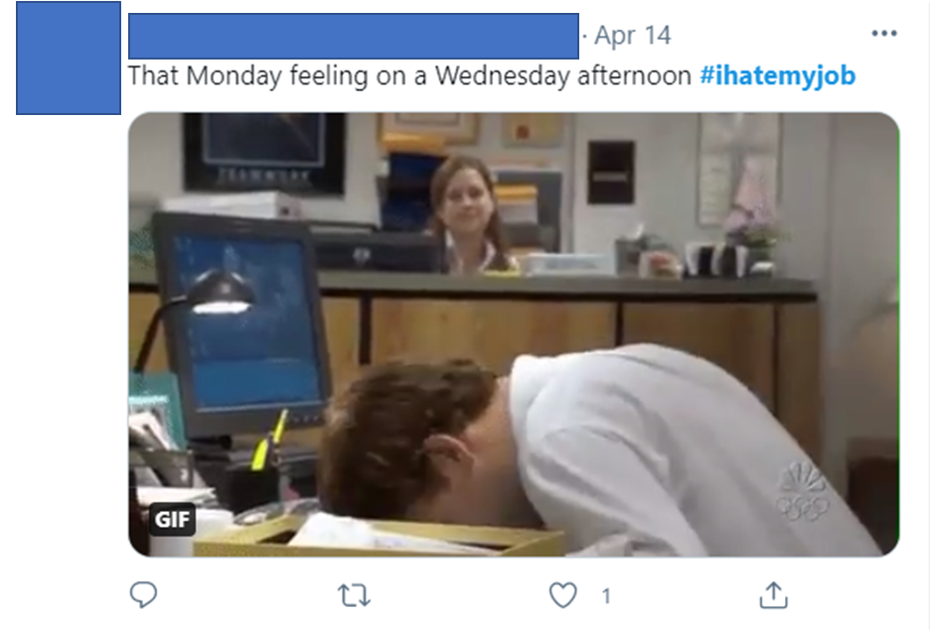
This is a public post on Twitter, in fact it was the top hit when we searched for this hashtag.
What does the hashtag mean/do?
A hashtag publicly displays a tweet within a group of similar topics and also makes it easier to search for, by anyone.
The more a hashtag is used, the more it is trending. By liking or re-tweeting, you help push attached hashtags further up in the rankings.
Some people use trending hashtags to increase their own audience in a bid to earn more followers.
What's wrong with that?
Generally, there is nothing wrong with the concept. However, hashtags like this could prove damaging to a lot of people.
By publicly declaring how much you hate your job, you are also implying that the company you work for is bad/boring/doesn't care about its staff. This, in turn, may affect the decision of current and future customers.
As you can imagine, this person's employer/boss/company will not be happy if there is anything to link them to this post. People have lost their jobs as a result of an ill-thought-out hashtag or public post.
What about re-tweeting or liking this?
The fact that you searched for this hashtag or found it suitable to share will have you facing questions about how you feel about your own employment.
So, what is your advice about hashtags?
The main thing is to consider whether there is anyone you wouldn't want to see it. If the answer is yes, then don't use it.
It is generally good practice to avoid posting on any social media platform about your feelings on work, religion, race, sexuality, or politics.
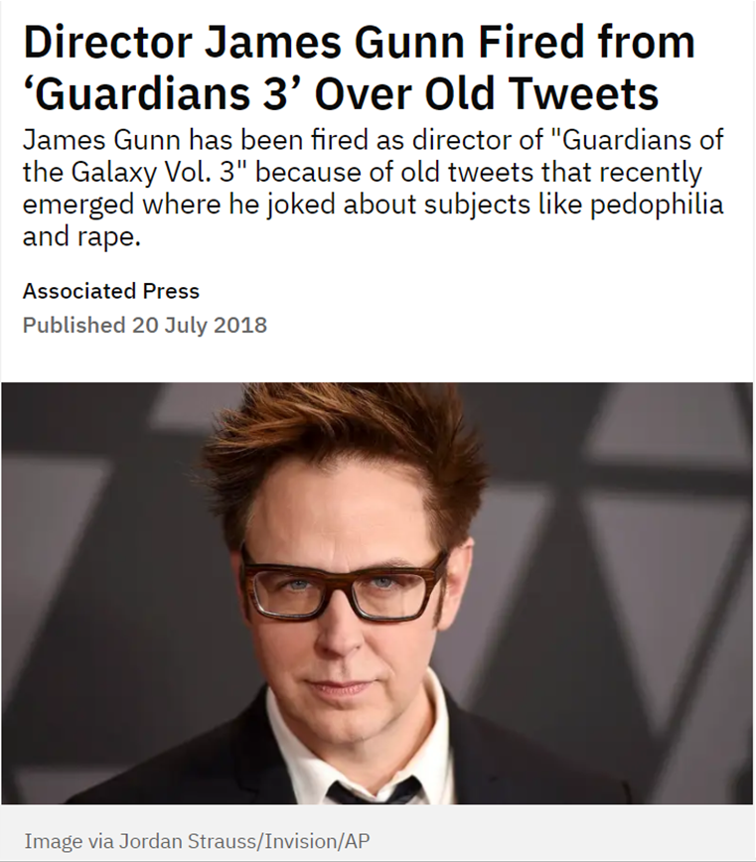
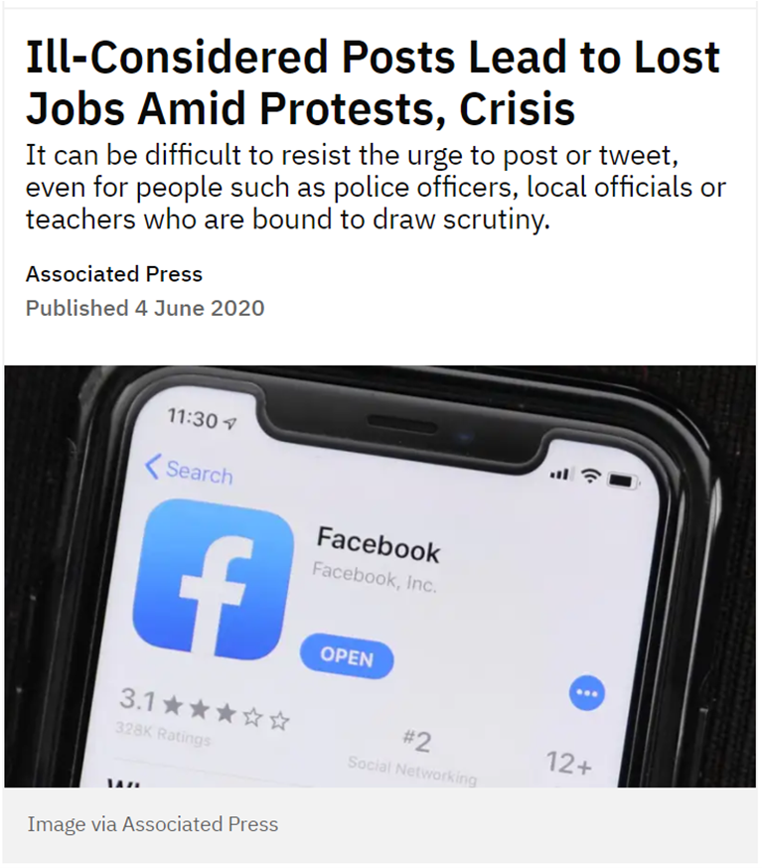
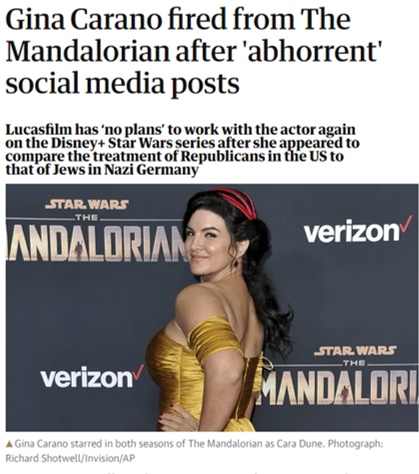

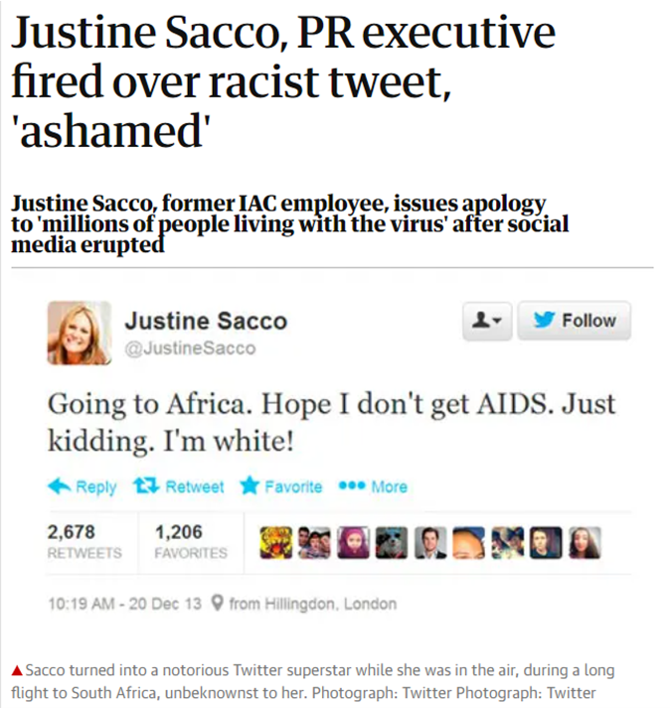

The post we've provided for this section has been fabricated using a fake Instagram template and a freely available photo. However, we wanted to highlight the risks associated with such a post.
This post shows how easy it is to not only show-off your prized possessions, whilst also opening yourself up to be robbed during your time away.
Remember, using hashtags broadcasts your messages further, anyone who comments, likes or shares this is spreading the information further. You could be the one to give this information to the criminal who makes use of it.
So, don't post about when you're away?
That is the general message, do not publicly announce when your home will be empty, or for how long as this knowledge could assist burglars and other criminals.
Another thing to check is whether the social media platforms you use give GPS or check-in options that tell other users where you are. If you check-in online at a hotel in a foreign country, you are telling the world that no-one's home.
But what about all my holiday pics?
The best advice is to post them after you've returned. Not only does this protect you from burglary, but it could also save you some money on your internet bill.
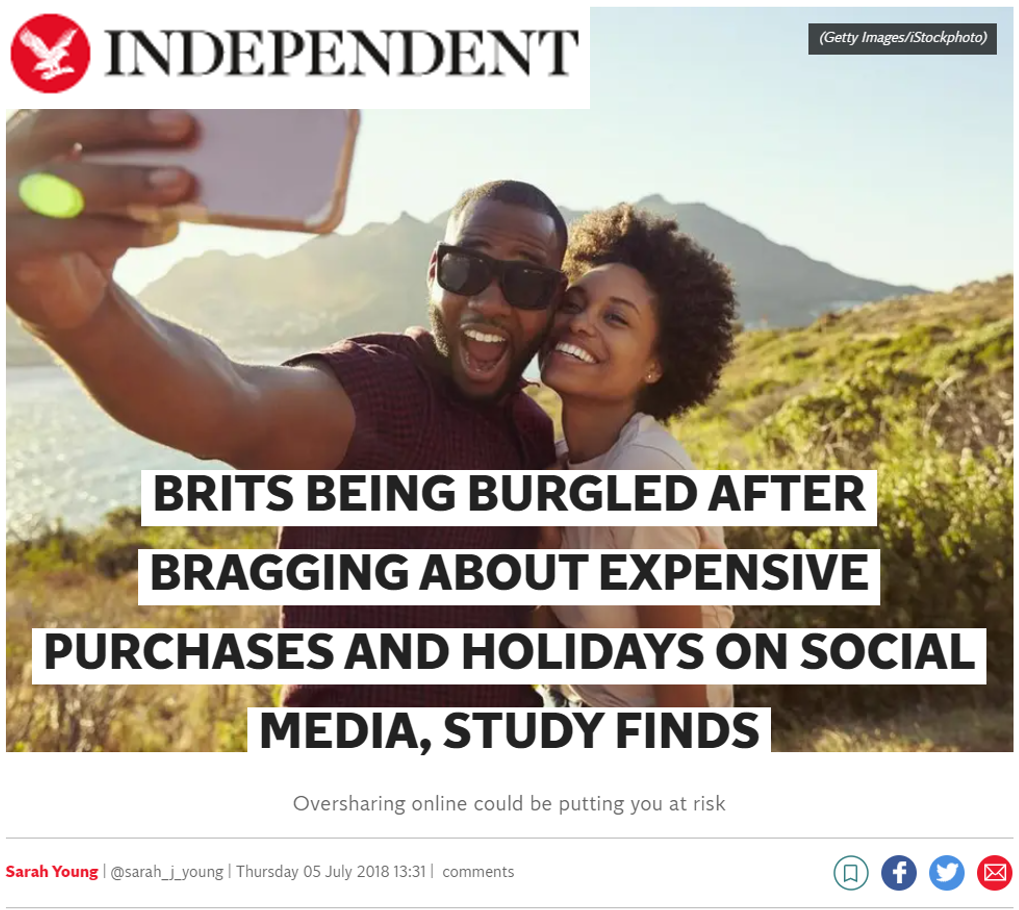
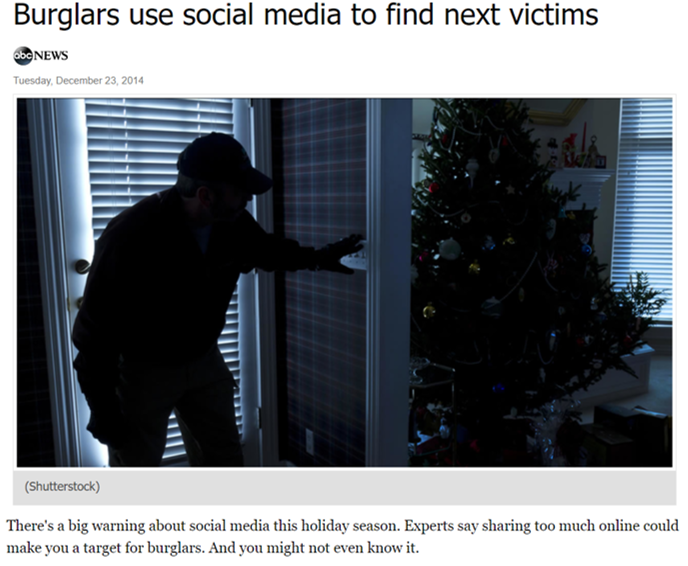
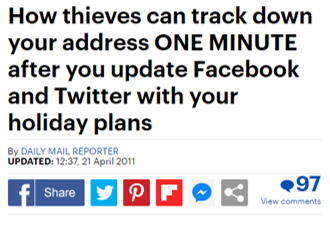
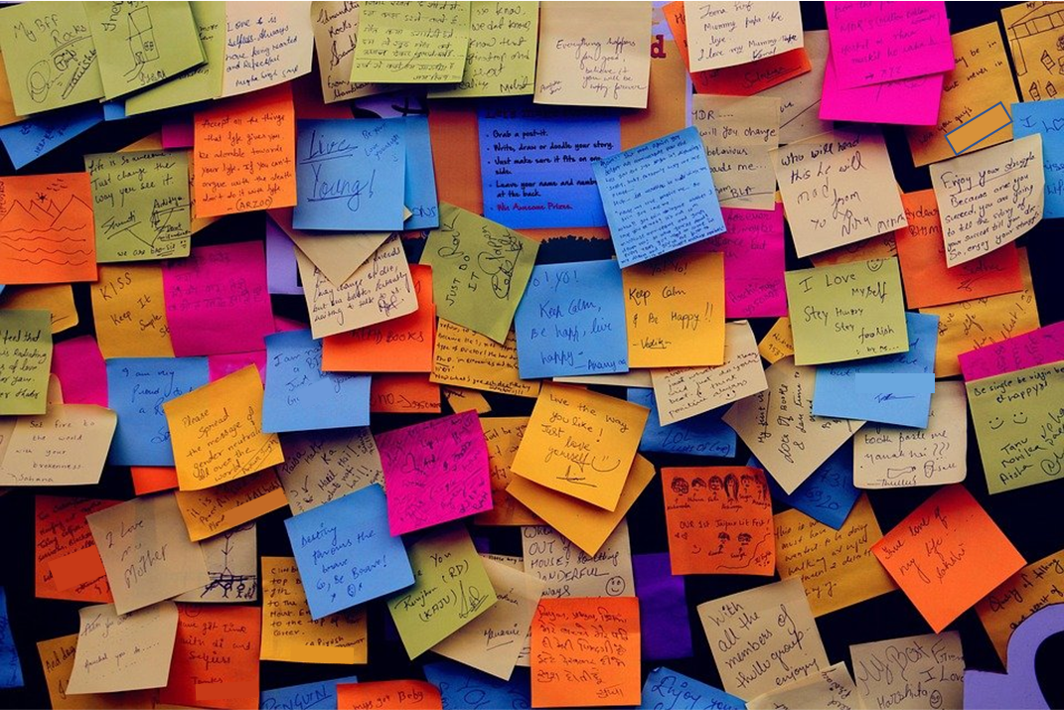
This photo is publicly available online. Initially it seems like a great example of an inspirational and motivational tool for the home or at work.
I am guessing there's a but...
When we took a closer look at the image, we had to apply some censorship through blurring. Check out the version below to see how much blurring was required (our blurring was made more subtle in the version provided above - we didn't want to give away the problem too easily).
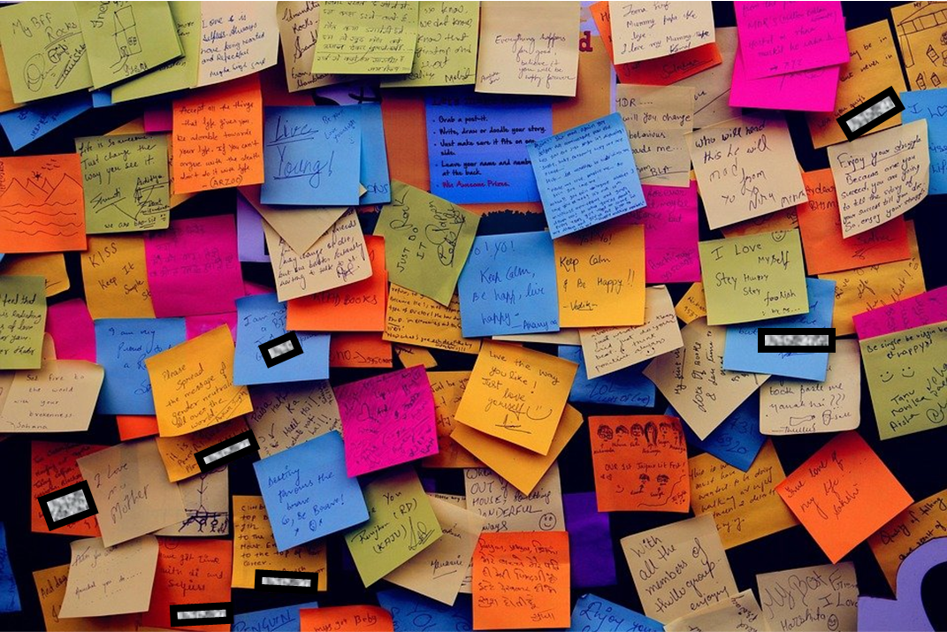
What did you need to censor?
Five of these cases were to mask phone numbers, one to blur out an expletive (swear word), and the last to hide a concerning quote about death.
Did the people involved expect their input to be shared online for the whole world to view, or just for use in the workplace? The content indicates the latter, meaning posting or sharing this is a breach of privacy and, in some countries, data protection laws (especially with the inclusion of names alongside phone numbers).
Our advice is to double check what you are photographing to make sure they do not include any personal details, especially if they are not your own.
Remember to always ask permission from all contributors before sharing team projects like this online.
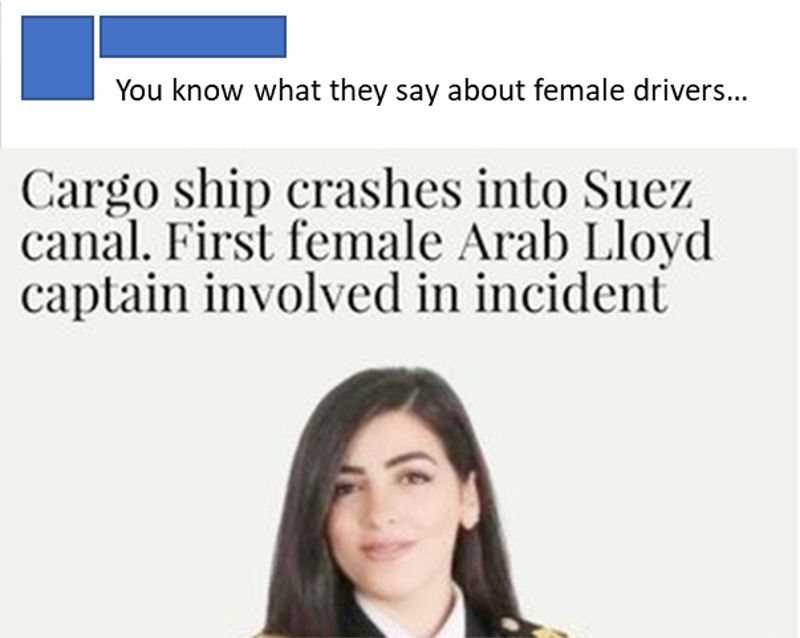
In March 2021, a large cargo ship crashed across and blocked the Suez Canal in Egypt for several days. This blocked a major international shipping route, causing billions of dollars' worth of hold-ups, and causing delays in deliveries worldwide.
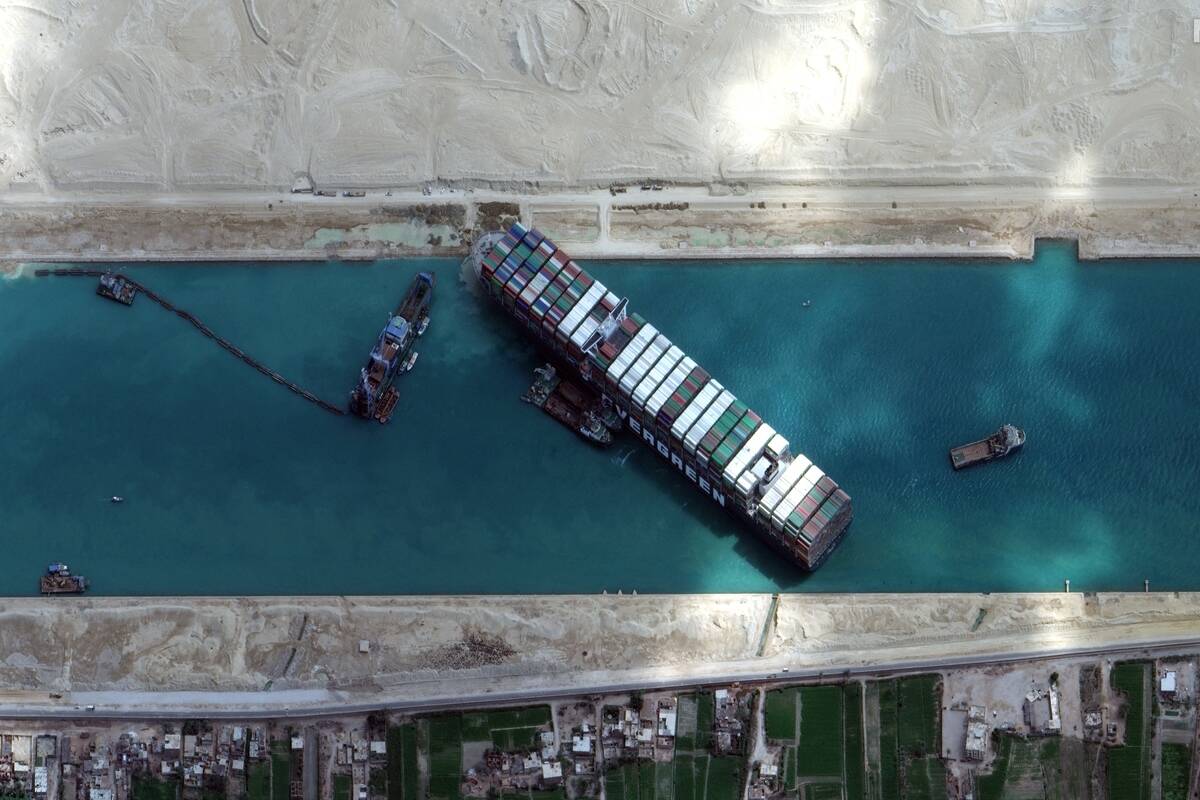
Due to the high tensions regarding this incident, the identity of the ship's captain has yet to be released (at the time of writing this) to protect them.
If that's true, then how come this article identifies her?
It doesn't. This is a doctored (photoshopped) headline that was shared on social media. Marwa Elselehdar (the woman shown) was hundreds of miles away from the Suez Canal when this happened.

This post is not only an example of cyberbullying against this successful woman, but also illustrates how fake news can be used to reinforce gender stereotypes.
In Egypt, a country where females are still having to campaign for equal rights, such accusations can have a negative impact.
By sharing, liking or commenting on such a post, you are assisting in spreading lies about an individual as well as aiding the darker agenda of the creators to stop the equal rights movement in Egypt.
If a 'news' post identifies an individual, do not share it further (that includes through commenting or liking) until you've checked it on a reliable news site (such as the BBC). If the article is true, then share it from the reliable source. If you cannot find it then check on snopes.com (they are a reliable fact-checking website). If it is fake, then please report the original post - most social media platforms are supportive of removing cyberbullying and fake news from their platforms.